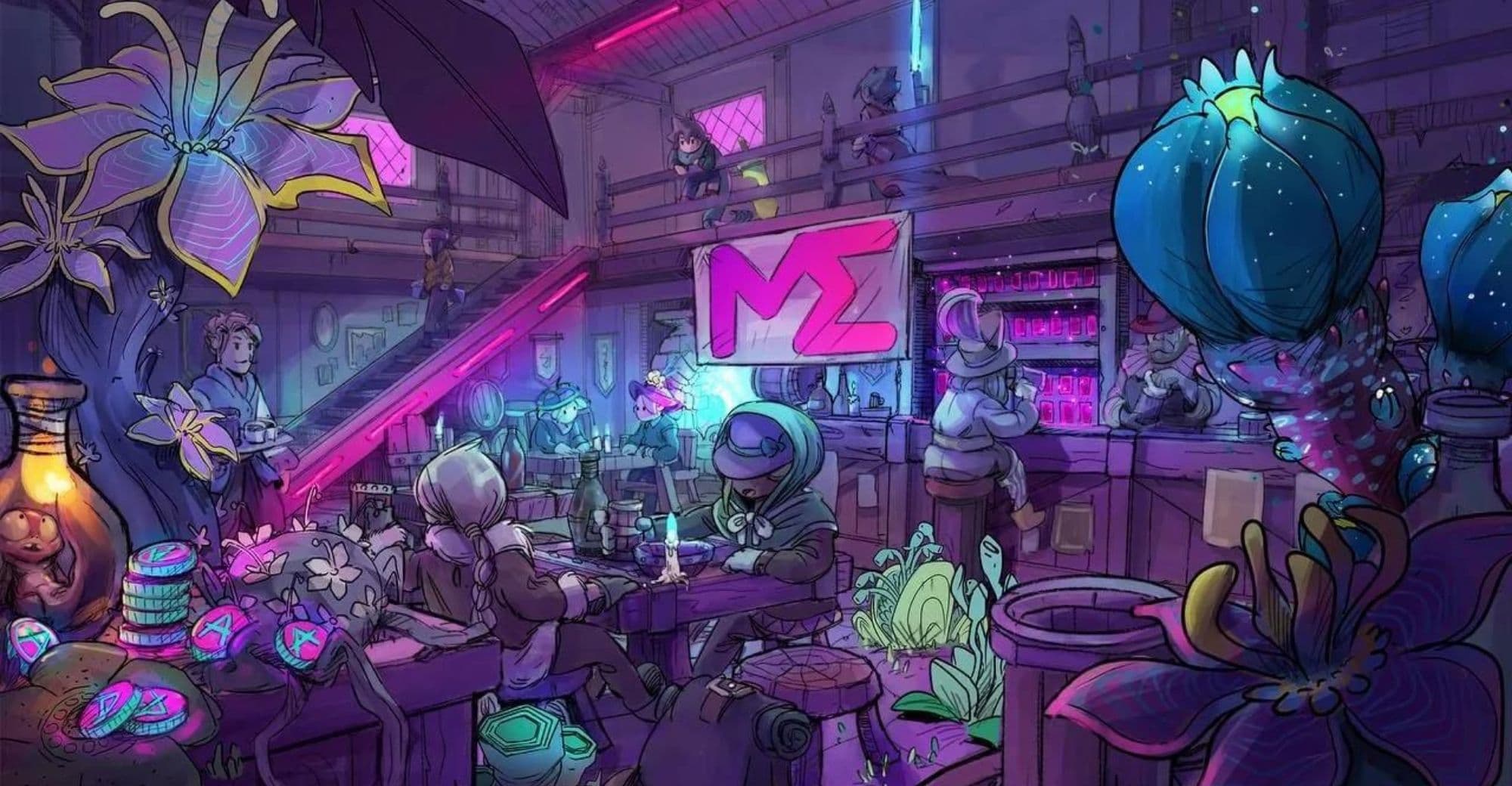In the rapidly evolving landscape of non-fungible tokens (NFTs) and gaming, Magic Eden has emerged as the new powerhouse, surpassing established players like OpenSea and Tensor to claim the top spot in terms of marketplace users.
According to data compiled by the NFT analytics platform NFTpulse, Magic Eden has witnessed a remarkable 36% increase in marketplace users over the past 30 days, boasting a transaction volume exceeding 230k.
In this article, we will cover everything you need to know about Magic Eden's rise and dominance in the NFT gaming space. We will also cover how Magic Eden's Runes platform launches ahead of schedule, offering users the ability to swap for $BTC and purchase Runes and Ordinals with ease.
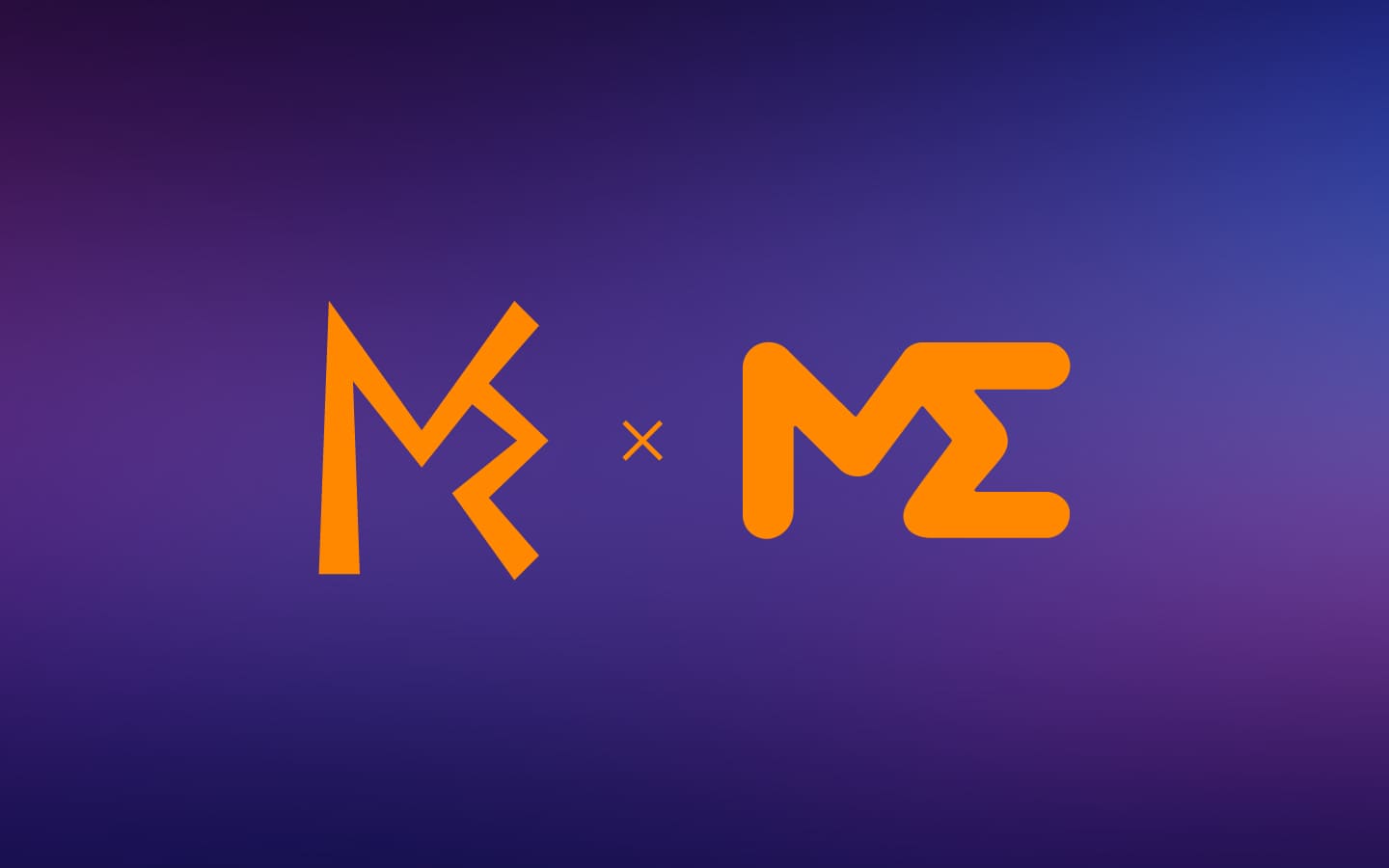
TLDR On Runes
The Magic Eden team has just announced the launch of its highly anticipated Runes platform. The announcement comes hot on the heels of the introduction of Runes Protocol, a novel token standard for Bitcoin inscription, coinciding with the Bitcoin halving event. This move aims to streamline inscriptions and reduce gas fees.
Bitcoin’s New Fungible Token Standard
Surpassing expectations, Magic Eden's Runes platform went live a day earlier than its slated debut today on April 23rd, 2024. Zedd Yin, the COO and co-founder of Magic Eden, lauded this launch as a testament to the company's unwavering dedication to becoming the go-to destination for all things Bitcoin.
"As pioneers in the Ordinals marketplace and fervent supporters of innovation in Bitcoin, it was imperative for us to deliver the best possible Runes experience," remarked Zedd Yin.
In its beta phase, Magic Eden's Runes platform offers users the convenience of swapping for $BTC and acquiring runes and ordinals using their Magic Eden wallet. Notably, the company has extended its support for Bitcoin innovation, transitioning from a non-BTC native NFT marketplace to one that embraces the world's leading cryptocurrency.
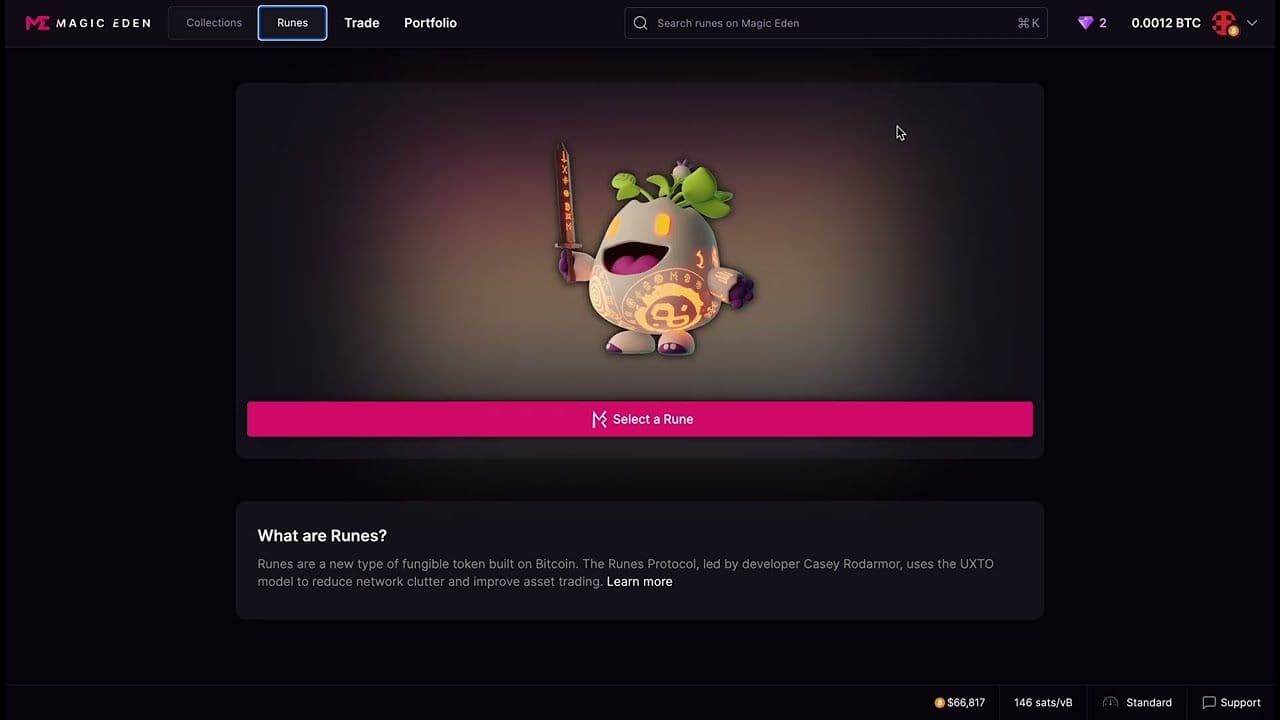
Over $20 Million TVL
An intriguing feature of the platform is the ability for users to preset the amount of $BTC they intend to spend on Runes during transactions, enhancing user control and flexibility. In a recent collaboration with the NFT project CyberKongz, Magic Eden unveiled the $BTC pre-runes collection Prometheans. This collection has already amassed an impressive 316 $BTC in Total Value Locked (TVL), equivalent to approximately $20.8 million, according to data from Magic Eden's Ordinals marketplace.
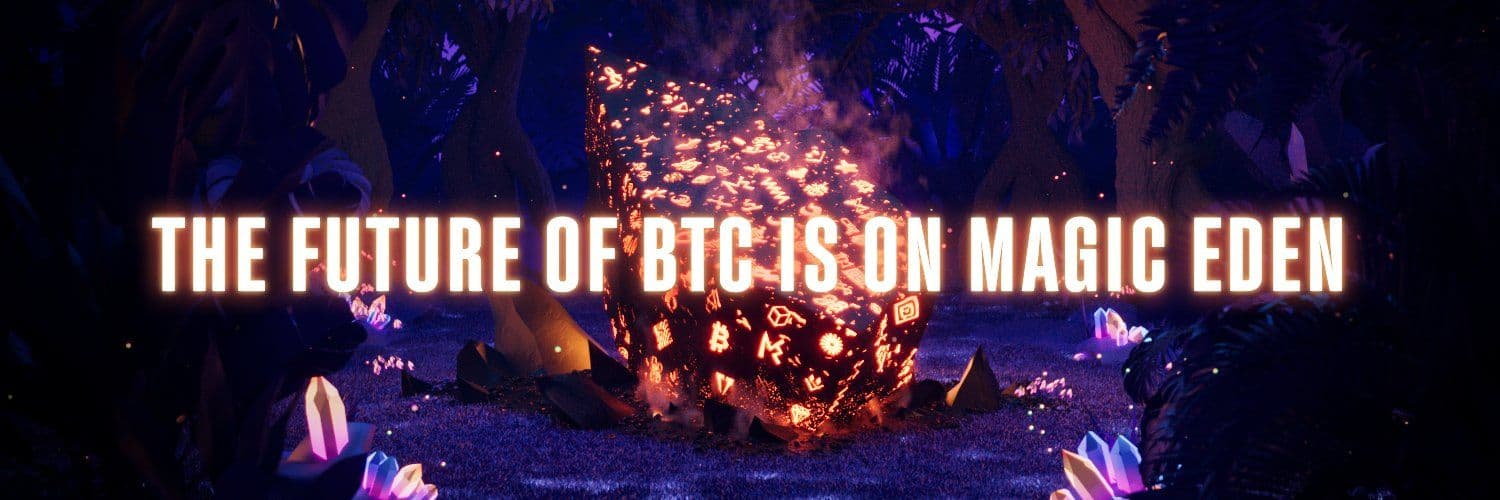
An Overview of Runes’ Conception
Runes was created by well-known developer Casey Rodarmor in September of 2023. Casey is also the creator of Ordinals, a new feature on the Bitcoin blockchain that allows for the creation of unique, digital artifacts by inscribing data directly onto individual Satoshis, the smallest units of Bitcoin.
BRC-20s have been the current Bitcoin token standard, but they have an issue with creating surplus “junk” UTXOs. These can clog up the network, making for a less-than-seamless experience for users. UTXOs, or Unspent Transaction Outputs, are essentially digital assets that you have received but haven't spent yet. Bitcoin Runes is an attempt to clean up the network while allowing traders to enjoy their meme coins on the mother chain.
Why You Should Care?
Runes has the potential to attract a wider audience. Runestone, a pre-Runes NFT project, airdropped a free Runestone to wallets that had 3 or more digital items (inscriptions) on the Bitcoin blockchain before the Runestone project launched. With a market cap of approx. $330 Million Runestone is attracting a lot of excitement around what holding this Ordinal could mean for receiving Runes.
Bigger User Base
Excitement isn’t the only thing that could attract more users. Typically Ordinals and other NFT collections limit their size to preserve collectibility, but Runes and similar types of tokens can be made in much larger amounts. This means it's easier for more people to own them and join the community of collectors. The attention around Runes as well as its accessibility could attract more worldwide adoption, something that is core to Bitcoin's mission.

Enhanced Security and Stability
Runes could offer a more secure and reliable platform for token creation and transactions. By using the UTXO for on-chain data storage, it inherits the security model of Bitcoin for stronger safety features and a reduced risk of security holes, aka vulnerabilities.
Being UTXO-based also means that Runes will be more resistant to reorganizations, which are when the Bitcoin network has to choose between two versions of its transaction history. Being more resistant to reorganizations means Runes transactions are less likely to be affected by changes in the Bitcoin network's transaction history, providing greater stability for these transactions.
More Developers, More Fun
Runes makes creating and managing new tokens simple and streamlined for developers. For the user, this means more developers are willing to build, which means more tokens and more things to get excited about.
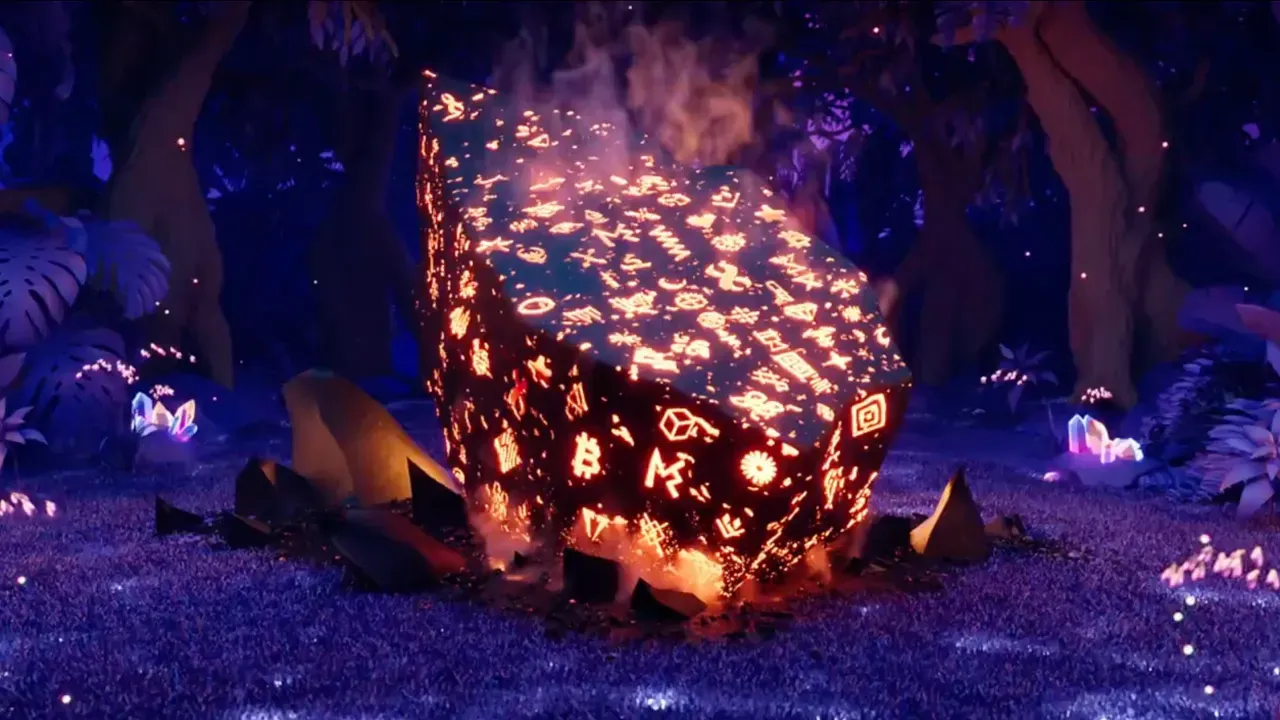
How Does Runes Protocol Work?
The Runes Protocol is designed for the Bitcoin network, allowing the creation and management of various types of digital tokens.
Bitcoin Runes uses a UTXO-based protocol, where each transaction starts by picking up pieces of Bitcoin that haven't been spent yet (like digital change) and uses them to create new transactions. Tracing each Bitcoin back to its creation ensures that every coin is unique and hasn't been falsely duplicated, giving you confidence that the Bitcoin you own or accept in a transaction is genuine and truly yours.
Compared to other protocols that may rely on off-chain data or special tokens, Runes utilizes Bitcoin native features for on-chain data storage. This allows for less of the “junk” UTXOs we mentioned earlier, which can bog down the network, causing transactions to be slower, more expensive and less reliable.
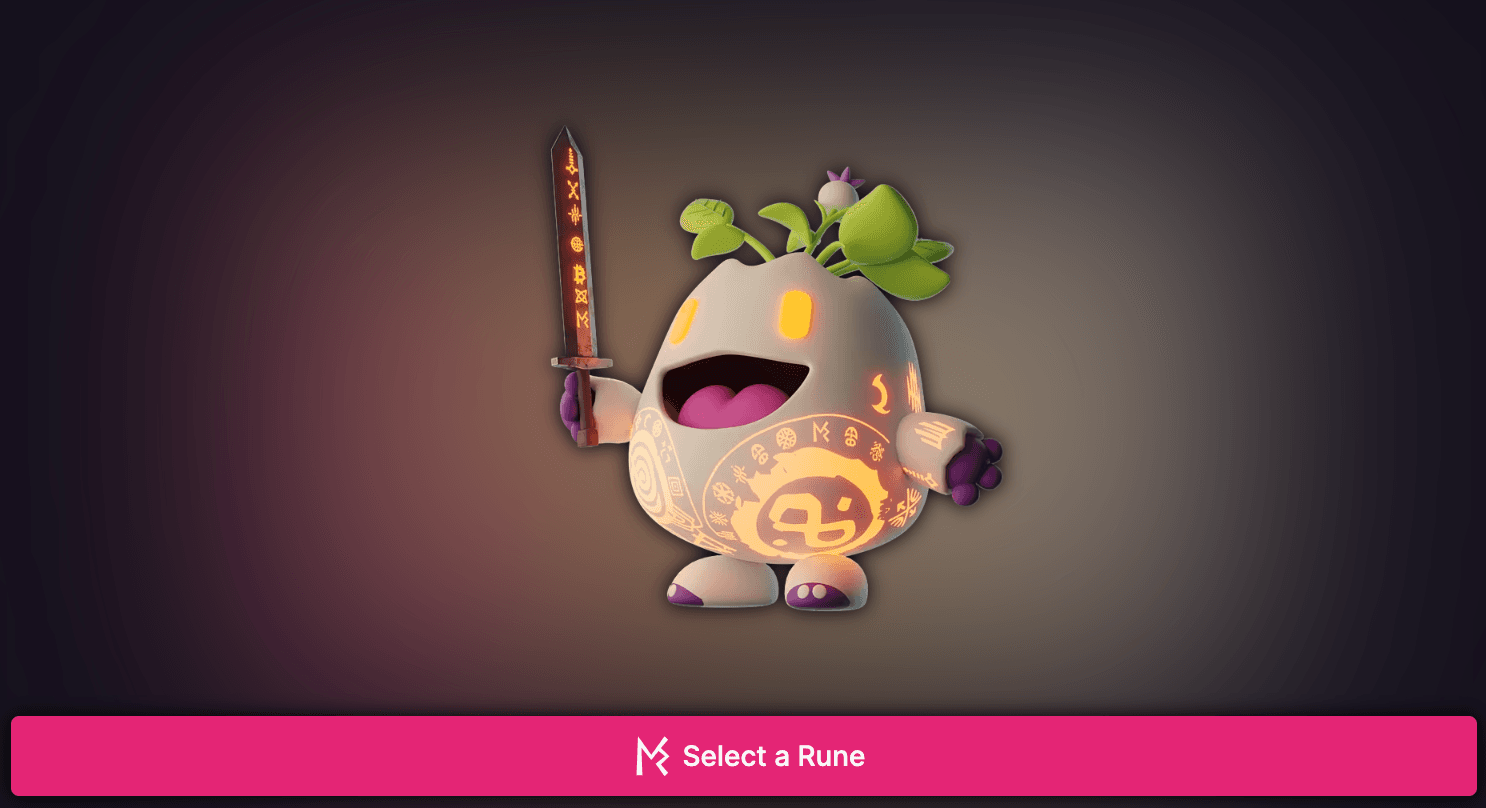
Specifically, Bitcoin Runes’ on-chain data storage is in the OP_RETURN part of a transaction. Picture jotting down a secret note on your Bitcoin transaction. OP_RETURN is that magic pen that lets you leave your mark without moving any actual Bitcoin. This keeps Bitcoin transactions neat and tidy because it doesn't add extra work for the network, which can affect the overall user experience.
You may also hear people talking about Runes having lightning compatibility. This means that Runes can use the Lightning Network, a separate layer on top of Bitcoin, to enable faster and cheaper transactions. This allows Runes transactions to bypass the usual delays and high fees of the Bitcoin network by using this faster, more efficient system.
How to Get Ready for Runes?
With the launch of the Runes Protocol, users can prepare in a few ways:
- Set up a Bitcoin wallet that’s compatible with Runes - suggested using ME Wallet for this.
- Stay up to date on any Bitcoin Runes announcements with Casey's Twitter, the main Twitter, and their BTC account.
- Make sure to get some Bitcoin. Since Runes operates on the Bitcoin network, having some Bitcoin in your wallet is essential for sending Runes and paying transaction fees. Note: Magic Eden’s Runes-compatible wallet supports swaps. You can quickly swap your existing tokens on other chains to Bitcoin within the wallet.
- Check out Pre-Runes, which are Ordinal collections that have said they'll be delivering Runes to holders. You can see these on Magic Eden's Pre-Runes tab, pictured below.
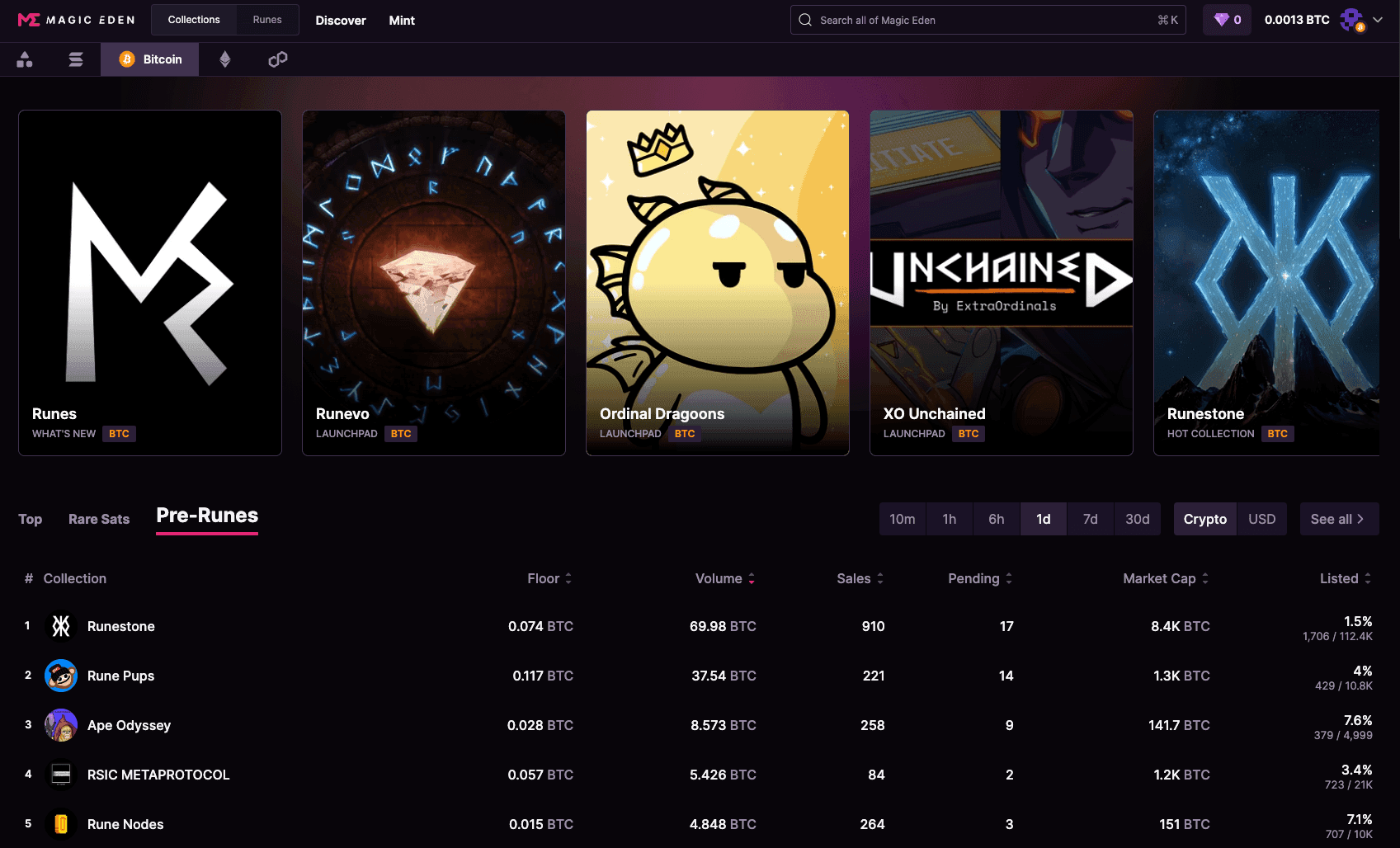
Final Thoughts
Initially focused on the Solana NFT community, Magic Eden expanded support to Polygon NFTs in November 2022. Bitcoin and Ethereum were subsequently added as the third and fourth supported chains in March 2023.
While overtaken by Tensor and OpenSea as the top NFT marketplace by daily trading volume last year, Magic Eden currently holds the position of the first-largest marketplace for Bitcoin Ordinals NFTs, following OKX, according to The Block's dashboard. The platform also accommodates BRC-20 tokens, an experimental standard for fungible tokens on the Bitcoin blockchain.
Magic Eden's early launch of the Runes platform marks a pivotal moment in the evolution of Bitcoin NFTs, promising increased accessibility and efficiency for users navigating the realm of digital assets. Lastly, Magic Eden's ascent to the top spot underscores the evolving landscape of the NFT market, characterized by fierce competition and shifting user preferences. With its focus on Ordinals and rapid user acquisition, Magic Eden is poised to solidify its position as a key player in the burgeoning NFT and gaming ecosystems.
This article was inspired by an original blog post, you can read the original write-up here for more information.

